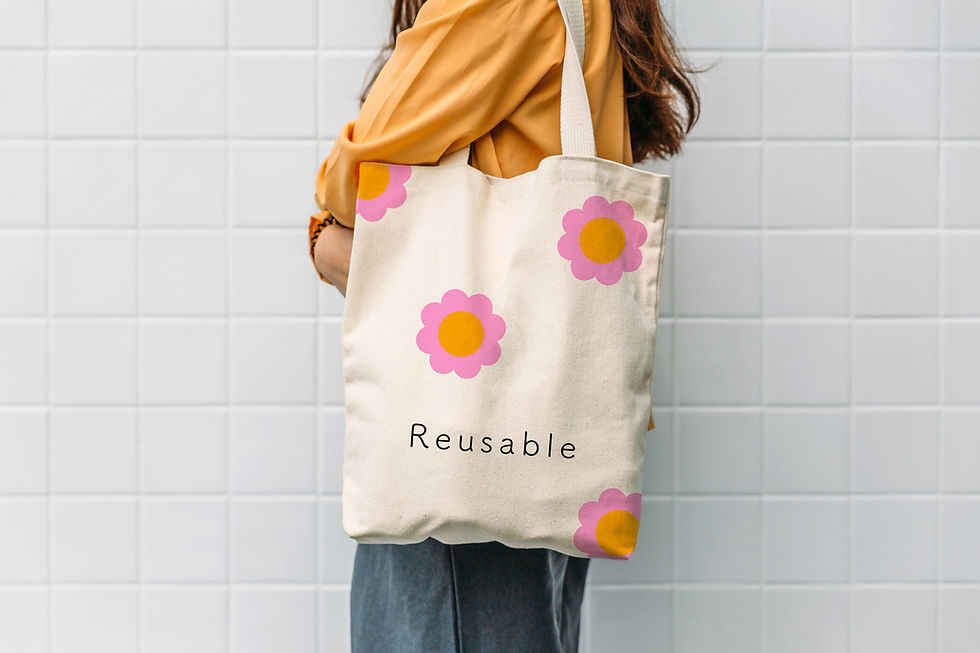Going Green
- The Highlander
- Feb 10, 2022
- 3 min read
Updated: Feb 11, 2022
Why should I go green?
Our generations have been plagued many of the horrible things done from our past. We can see the affects of the industrial age affecting our future to be more sustainable.

It's not my problem! Other people can solve it!
This is the wrong mindset to have as the phrase "Be a part of the solution, not the problem". We as a society have to band together in order for any meaningful change to occur. If a person believes that they should not do their part, then why should others bother.
While there are indeed many scientist working hard to find a solution to our problem, we need to slow down the rate of destroying our environment. Sometimes, we believe our impact is small however, any sort of impact is a great one as it changes our way of thinking.
I'm convinced. What should I do to help?
There are limitless things you can do to do your part.
1. Replace disposable items with reusable

Anything you use and throw away can potentially spend centuries in a landfill. See below for simple adjustments you can make to decrease the amount of disposable items in your daily life.
Carry your own reusable cup or water bottle
Use airtight, reusable food containers instead of sandwich bags and plastic wrap
Pack a waste-free lunch: carry your utensils, cloth napkin, and containers in a reusable lunch bag
Bring your own bags to the grocery store
Consider buying bulk containers of your preferred beverages and refilling a reusable bottle, instead of buying individually packaged drinks
Use rechargeable batteries
2. Pass on paper

We are living in the Digital Era, but think about all the paper products you use in your daily life. These actions still align with reusing and repurposing, though may take a little more time for transition.
Join a library instead of buying books or buy a Kindle
Print as little as possible; and if you must, print on both sides
Wrap gifts in fabric and tie with ribbon; both are reusable and prettier than paper and sticky-tape
Stop using paper towels and incorporate washable cloths
Look at labels to make sure you only use FSC-certified wood and paper products
Cut out products made by palm oil companies that contribute to deforestation in Indonesia and Malaysia
3. Conserve water & electricity

The tips you see below will seem like no-brainers; however, it may take to become more aware of your unconscious habits.
Turn the sink water off when brushing your teeth
Water the lawn in the morning or evening; cooler air causes less evaporation
Switch off anything that uses electricity when not in use (lights, televisions, computers, printers, etc.)
Unplug devices when possible; even when an appliance is turned off, it may still use power
Remove chemicals inside of the house; research companies that use plant-derived ingredients for their household cleaning products
Remove chemicals outside of the house; use eco-friendly pesticides and herbicides that won’t contaminate groundwater
Consider signing up for a renewable energy producer that uses 100% renewable energy to power homes
4. Support local & environmentally friendly
Here are a few reasons to start buying local:
Reduces plastic and paper waste
Boosts cost-efficiency
Enables bulk purchasing
Helps support your neighbors
Retains farmland within the community
Builds up the local economy
Uses fewer chemicals for both for growing and transporting
5. Recycle (& then recycle properly)

Implementing recycling habits into your daily life is one of the most effective ways to help lessen landfill waste, conserve natural resources, save habitats, reduce pollution, cut down on energy consumption, and slow down global warming.
Confirm you are using the proper separation containers for your household per the local recycling services
Remember to make sure your trash bags are recycled or biodegradable, and always cut up the plastic rings from packs of beer or soda to prevent wildlife from getting caught
Educate yourself about what can and cannot be recycled, as not all plastic and cardboard is acceptable (like pizza boxes for example, due to the grease)
Learn how to identify and dispose of hazardous waste properly
Conclusion
Going green might sound hard on paper but with just a little extra effort, we can really make a change for the better. So, go outside today, see that tiny trash stuck there? Pick it up and dispose it. There are so many things we can do to improve our environment, all we need is just the necessary push in the right direction.


Comentários